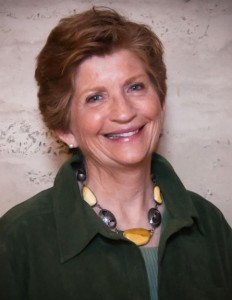Would you rather listen? If so, click here:
“Read it to me one more time, Mommy.”
And off we go again, hearing how the damsel in distress was swept off her feet by her charming prince … and lived happily ever after.
Unfortunately, that’s probably one of the most insidious things our mothers could have put in our heads. Yet, virtually all of them did.
In many cases, those long-ago, childhood memories were left in that less-visited portion of our brains: the subconscious instead of the conscious part.
As we grew up, Prince Charming stayed in hibernation as we went through school, watched our own persona develop, and started believing we could indeed do whatever we wanted. (He may actually have been more present in your mother’s conscious brain than in yours, as she envisioned your future for you.)
But if you’re in your fifties or older, you were reaching maturity in an age when Elizabeth Cady Stanton, Betty Friedan and Gloria Steinem had already done the heavy lifting. Women’s Lib had already opened some doors, even if it hadn’t established any rules or realistic expectations. All we knew was that we had no excuses: we were expected to do our part and be as effective in the boardroom as we were in the bedroom … and in the kitchen.
Then came love. Suddenly, everything we had achieved, often at great personal cost and frustration, was put on a second plane. After all, he asked us to marry! Marriage! We were going to be able to dress like princesses with flowing white veils. Our groom would look absolutely handsome, in fact, princely. This would be a special day, a bit of a fairy tale …
Hmmmm. A fairy tale.
The fairy tale was so powerful, tugging at memories of cuddly sessions in bed as our mothers read aloud about regular little girls who were saved by a prince and lived happily ever after.
Why would we ever ask any questions? Such as: What were his financial dreams? How did he look at money? How did he spend it? How did he expect the two would share the financial role within the couple? In short, what kind of financial match was he? Why ask and maybe rock the boat? After all, we were going to live happily ever after.
Once married, we tucked away the fairy tale memories for safe-keeping.
Soon demands on our time and our energy escalated: one child after the other was born. Colic, diapers, boo-boos, after-school schedules, soccer practice and teenage acne added to the weight of our days.
And falling into our beds, exhausted, added to the reality of our nights.
However, our mission was clear. We were supposed to be Superwoman. Somehow we were to master it all. Or at least fake it.
Whether our careers were put on temporary hold, or we juggled them along with our household duties, we recognized that, deep down, we had become pretty amazing beings. We pulled our weight sufficiently to believe that we could probably take care of ourselves financially. If push came to shove and something dire happened, we probably had the wherewithal to deal with whatever hand was dealt us.
Fast forward to our 50s, today. That “fairy tale” story has had one of several endings. If lucky, the bride and groom continued side-by-side, sharing responsibilities, each taking his or her traditional role; the kids grew up and married and today everything is hunky-dory.
But other potential endings exist as well: widowhood … divorce … job loss by our mates.
That’s when the real test kicks in about how well we learned the lessons of financial adeptness and comfort. About how far we developed our concept of self-responsibility. Whether enough of our self-identity has survived the years. Whether some event will eventually trigger the critical factor of self-preservation.
Some of us will pass, some of won’t.
But here is what is most amazing: whether we take the reins and build a strong financial foundation for ourselves or not, at some point the fantasy that was left sleeping quietly in our subconscious minds for so many years … reawakens.
As incongruous or even intellectually silly as it may seem, something deep inside us calls again for a man who’s a provider. A handsome prince on a white horse. We want the shoulder to lean on, whether we need his money or not. We love having the door opened and the restaurant tab disappearing from the table. In short, someone to “take care of it all.”
It’s true that the “Women’s Rights era” we enjoy today represents a very short blip on the timeline of history. How long have we had the right to vote? The right to take out loans in our own names without our husbands’ signature? The right to attend virtually any university or to work in any profession?
From the time women gained full civil rights in 1848, seven generations of women have deliberately pushed, cajoled and demanded changes in family life, in religion, in government, in employment and in education.
So, more than likely, our natural reflex action to find a strong provider harkens back to a purely biological need: the fact that women sought out the men who seemed most able to protect and feed them … and their offspring … in order to perpetuate the species.
Who would think that something this complex would be wrapped up in something so innocent: the story of a beguiling young girl and her fantasies about being swept off her feet by a handsome young man by the name of Prince Charming?
Are you still waiting for yours? Does that fantasy come and go, peeking out in moments of greater financial uncertainty? What role does that childhood fairy tale play in your future plans, especially the long-term ones?
It’s okay that he’s there, because he’s in the subconscious of virtually every woman. The key is to know how real he is … and how much of a fairy tale.
(Whatever you do, be sure you’re taking care of yourself.)
And let me know in the comment section below what you think …
xxxxxxxxxx
 Bio: Sharon O’Day lost everything at age 53: her home, her business, everything. But how could that be? She’s an expert in global finance and marketing with an MBA from the Wharton School. She has worked with governments, corporations, and individuals … yes, she was the secret “weapon,” if you will, behind many individuals in high places. But yet she did! Since then, Sharon has interviewed countless women and done extensive research to understand how that could have happened, especially with her strong knowledge of numbers and finance.
Bio: Sharon O’Day lost everything at age 53: her home, her business, everything. But how could that be? She’s an expert in global finance and marketing with an MBA from the Wharton School. She has worked with governments, corporations, and individuals … yes, she was the secret “weapon,” if you will, behind many individuals in high places. But yet she did! Since then, Sharon has interviewed countless women and done extensive research to understand how that could have happened, especially with her strong knowledge of numbers and finance.
The surprising answers will be shared in her upcoming book “Money After Menopause.” Today her mission is to show as many women as possible how to become financially free for the long term, through her “Over Fifty and Financially Free” coaching programs. She has developed a step-by-step plan to get past all the obstacles that keep women broke and scared … and from reaching the financial peace of mind they so deserve.







